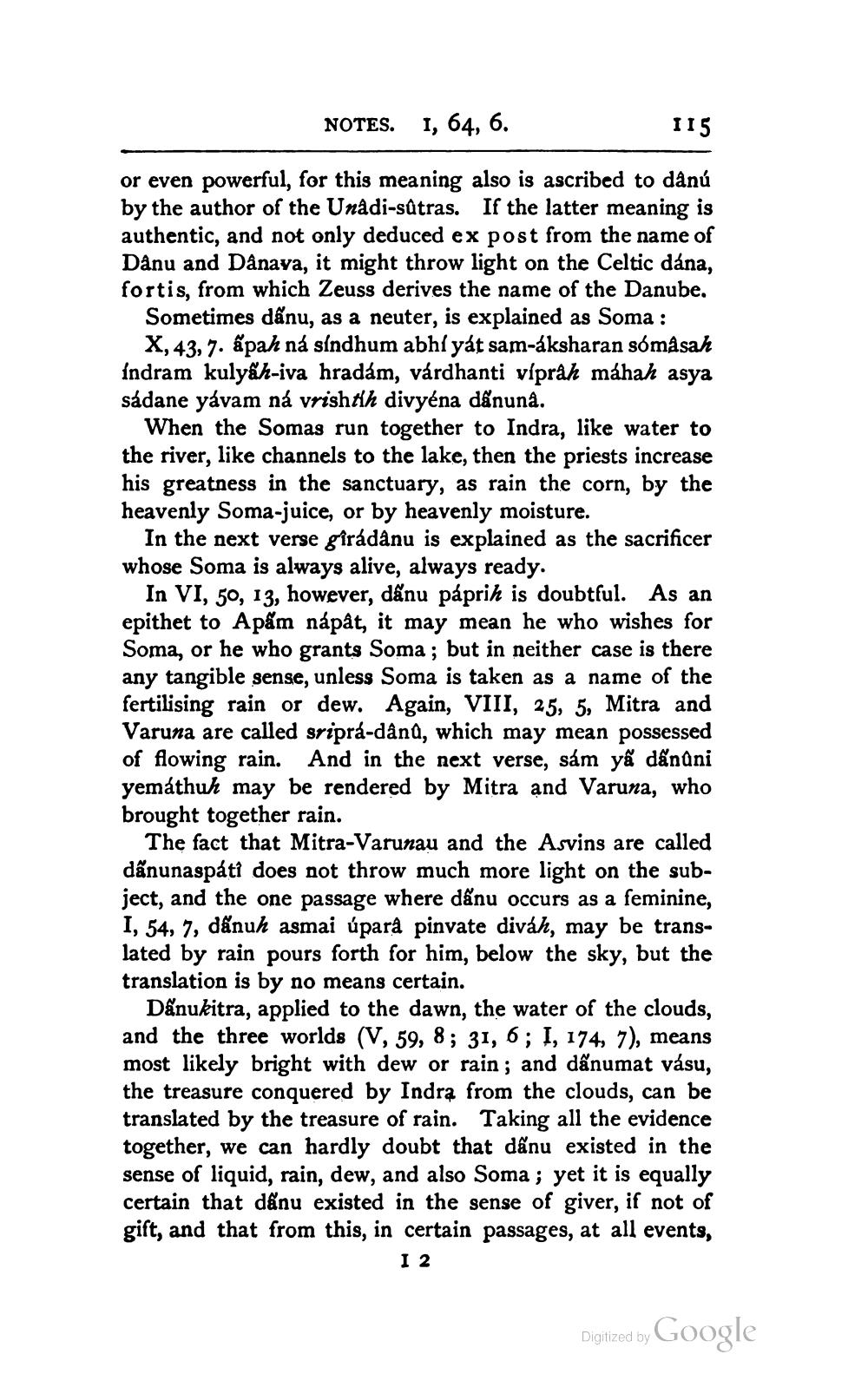________________
NOTES. 1, 64, 6.
115
or even powerful, for this meaning also is ascribed to dânú by the author of the Unadi-sútras. If the latter meaning is authentic, and not only deduced ex post from the name of Danu and Dânava, it might throw light on the Celtic dána, fortis, from which Zeuss derives the name of the Danube,
Sometimes dãnu, as a neuter, is explained as Soma :
X, 43, 7. ápah ná síndhum abhí yat sam-áksharan sómasah Indram kulyáh-iva hradám, várdhanti vipråh máhah asya sádane yávam na vrishtlh divyéna dânuna.
When the Somas run together to Indra, like water to the river, like channels to the lake, then the priests increase his greatness in the sanctuary, as rain the corn, by the heavenly Soma-juice, or by heavenly moisture.
In the next verse giradanu is explained as the sacrificer whose Soma is always alive, always ready.
In VI, 50, 13, however, dấnu páprih is doubtful. As an epithet to Apam nápåt, it may mean he who wishes for Soma, or he who grants Soma; but in neither case is there any tangible sense, unless Soma is taken as a name of the fertilising rain or dew. Again, VIII, 25, 5, Mitra and Varuna are called sripra-dând, which may mean possessed of flowing rain. And in the next verse, sám yã dângni yemáthuh may be rendered by Mitra and Varuna, who brought together rain.
The fact that Mitra-Varunau and the Asvins are called dãnunaspáti does not throw much more light on the subject, and the one passage where dấnu occurs as a feminine, 1, 54, 7, dânuh asmai úpara pinvate diváh, may be translated by rain pours forth for him, below the sky, but the translation is by no means certain.
Dänukitra, applied to the dawn, the water of the clouds, and the three worlds (V, 59, 8; 31, 6; I, 174, 7), means most likely bright with dew or rain; and dãnumat vásu, the treasure conquered by Indra from the clouds, can be translated by the treasure of rain. Taking all the evidence together, we can hardly doubt that dấnu existed in the sense of liquid, rain, dew, and also Soma ; yet it is equally certain that dãnu existed in the sense of giver, if not of gift, and that from this, in certain passages, at all events,
I 2
Digitized by
Digized by Google




